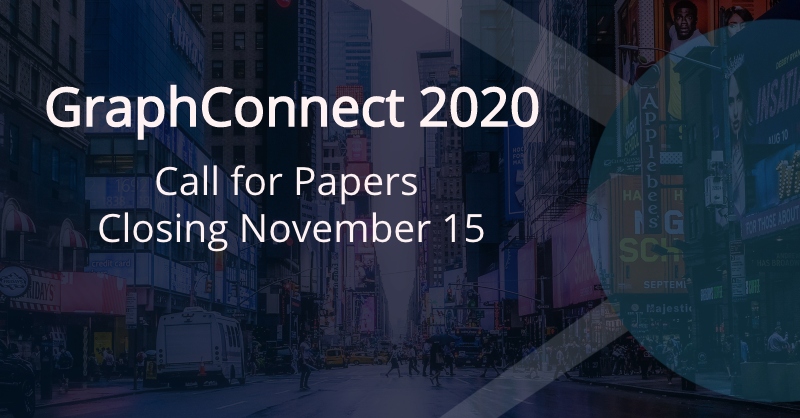After last week’s trip to Sweden for our team offsite and the NODES 2019 conference, this week was a quieter one back at home base. We spent the first half of the week going over all the videos and collecting speakers’ slides, which are all now available at neo4j.com/online-summit.
We’ll be featuring some of our favourite presentations from the conference in TWIN4j, starting this week with Tuning Cypher by Andrew Bowman, our resident Cypher guru. Andrew even inspired Tomaz Bratanic to try out some of these tuning techniques and has written a blog post of his findings.
Now that NODES is over, we’re getting ready for GraphConnect 2020 and need your help to make the developer track as exciting as possible. Read more below to get involved.
And finally, the brand new Neo4j Educator Program was launched, we learn how British MPs vote via the Pearson Similarity algorithm, and there’s a comparison of the Northwind dataset in Neo4j and PostgreSQL.
Enjoy!
Cheers,
Mark Needham and the Developer Relations team
Featured Community Member: Ryan Boyd
This week’s featured Neo4j community member is Ryan Boyd.

Ryan Boyd – This Week’s Featured Community Member
Ryan worked at Google and several startups before joining Neo4j, where he led the Developer Relations team alongside Michael Hunger for almost 5 years.
He was instrumental in many highly successful efforts, including the Intro to Graph Databases YouTube series and Neo4j Sandbox, both of which have acted as the first touch point for many users. He also worked on many of the emails you receive when using our services.
But for us he’s been at the heart of our team, making sure every member has all the support they need and helping many of us learn new skills and technologies.
This week Ryan started a new job as the Head of Developer Relations at Databricks, the creators of Apache Spark. Ryan, we wish you all the best in your new role but will miss you a lot.
NODES 2019: Tuning Cypher
We’ve started publishing the videos from the recent NODES 2019 conference on YouTube, and first up is Andrew Bowman’s talk on Tuning Cypher.
Andrew is a Customer Success Engineer at Neo4j and prominent member of the Neo4j community on StackOverflow and the community forum. He has helped hundreds (perhaps thousands!) of people with their Cypher queries. In this talk he takes us through the anatomy of a Cypher query, as well as sharing his favourite tips and tricks for making Cypher queries run as fast as possible.
GraphConnect 2020: Call for Papers Closing November 15

There’s only six months until GraphConnect 2020 and we’re approaching the last month of the Call For Papers, which closes on November 15th 2019.
Will Lyon is responsible for the Developer track on the conference committee, and he needs your help to fill in the schedule! If you’re an experienced graphista or are just getting started on your first graph project, we’d love for you to present an experience report so that we can all learn together.
If you’re short of ideas, you can always get inspiration by looking at the talks from NODES 2019 or GraphConnect 2018. And if you’d like to bounce talk ideas off someone, send us an email to devrel@neo4j.com.
British MPs voting similarity, Loading US Lobbying Data, Northwind: Neo4j vs PostgreSQL

- I enjoyed reading Joshua’s blog post on British MP voting similarity. Joshua builds a graph of all the votes by MPs since 2017, and then uses the Pearson Similarity algorithm to compute similarities.
- The video and slides from David Allen and Will Lyon‘s talk on Neo4j and Kafka at Kafka Summit SF 2019 are now available.
- Scott Sosna has written a blog post showing how to load US lobbying data into Neo4j, using Neo4j OGM.
- Ray Robinson has written a blog post exploring how graph databases can be applied to data analytics projects. He also looks at different approaches to visualising graph data.
- I came across a cool blog post showing how to load and query the Northwind dataset using Neo4j and PostgreSQL.
Empowering Educators: Neo4j’s New Program for Classroom Instruction

This week Jennifer launched the new Neo4j GraphAcademy University Program. The new look program has updates specifically for instructors teaching Neo4j in a classroom lab setting.
Members of the educator program will get:
- license and installation of Neo4j Desktop
- access to official training materials
- a dedicated support channel on the community site
Graph model of Facebook post reactions in Neo4j

Inspired by Andrew Bowman’s Tuning Cypher talk at NODES, Tomaz Bratanic has written a blog post sharing some of his favourite Cypher query optimisations.
Tomaz goes through different models of a synthetic Facebook dataset, comparing query profiles and run times of each approach. After reaching the limits of pure Cypher, Tomaz shows how to squeeze out even more performance using APOC, Neo4j’s standard library.
Tweet of the Week
My favourite tweet this week was by Maria Wörheide:
Personal highlight of #NODES2019 ? Definitely the talks by @AliciaFrame1 on graphs in AI/ML and graph embeddings. PLUS the conference was free of charge AND no need to travel (because online)!! Way to go @neo4j
— Maria Wörheide (@mwoerhe) October 10, 2019


